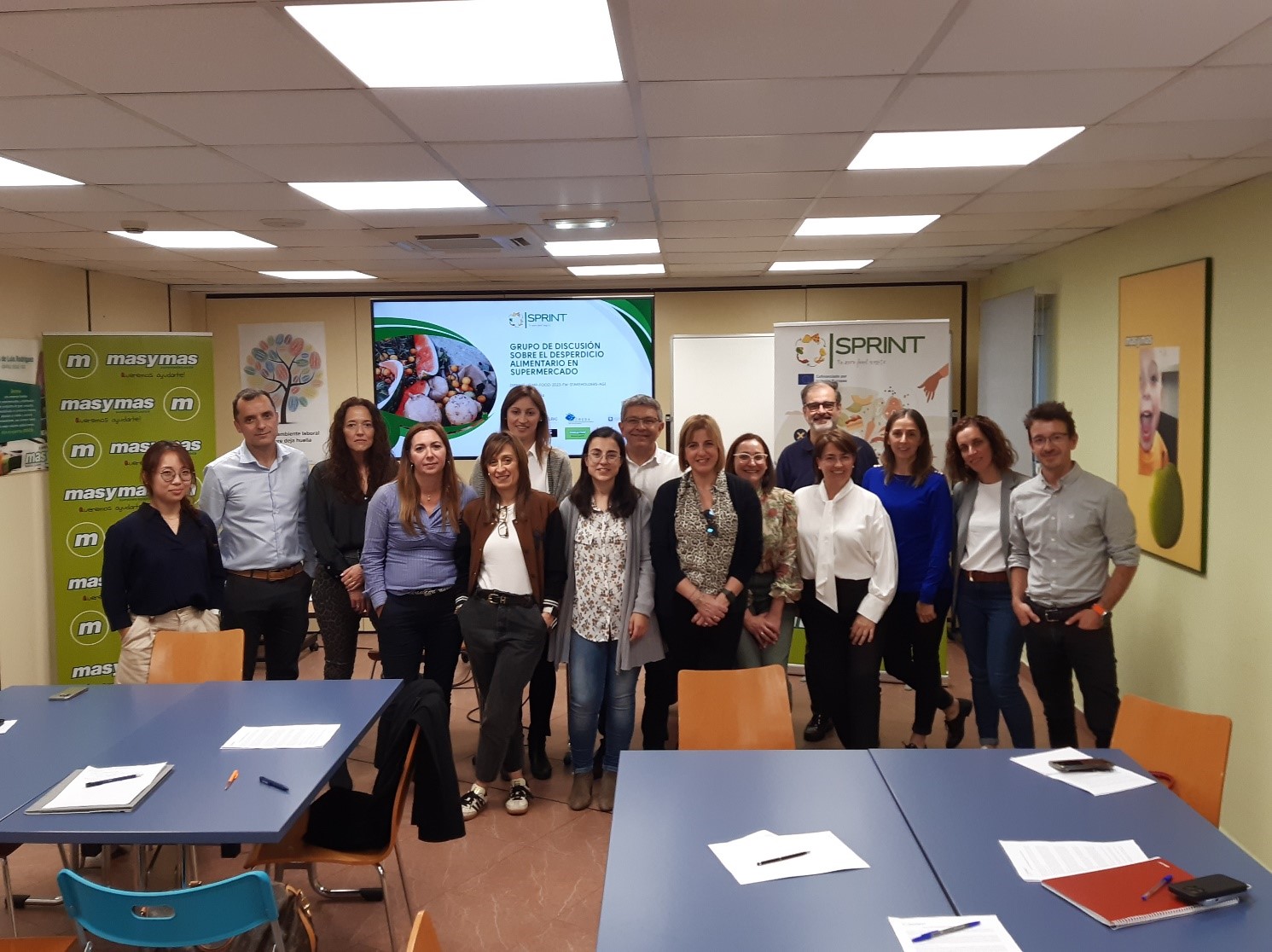
SPRINT celebrates one year promoting real solutions against food waste
The European SPRINT project has completed its first year of implementation and continues on the path to achieve its goal of reducing food waste in households, supermarkets and hotels. Through a participatory, systemic and evidence-based approach, the methodological, technological and social foundations have been laid to transform behaviours and contribute to the optimisation of food management in different contexts.
During the first year of implementation, the project has worked from a collaborative logic, promoting co-creation processes with local actors in different areas (homes, hotels and supermarkets).
Among the main achievements are the following:
- Behavioural diagnosis and analysis: A national survey was conducted with more than 2,000 responses and a comprehensive diagnosis that identified educational, cultural and psychological factors that influence food waste.
- Participatory design of interventions: 3 working groups were organised with key actors (households, supermarkets and hotels) and 6 focus groups were carried out, which allowed for the collection of valuable qualitative information.
Within the focus groups, 4 groups were carried out with families (two in Barcelona and two in Asturias), with the differentiated participation of families with children and families without children.

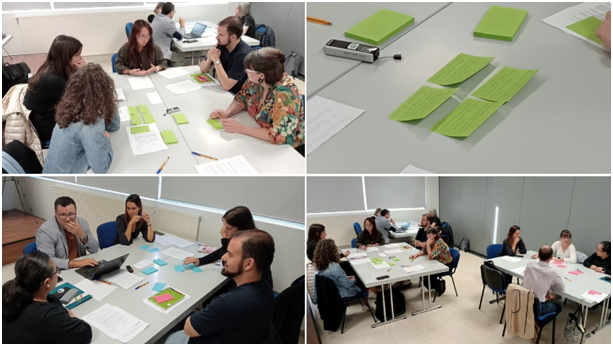

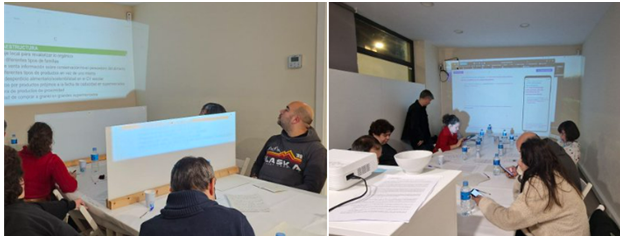
On the other hand, the focus groups with the MasyMas supermarket and the ARTIEM hotel chain included the participation of professionals linked to key areas such as logistics, operational management and customer service, among others, which made it possible to understand the internal dynamics that can affect the generation of food waste in these sectors. Through this work, specific strategies were defined for each context. It validated a co-creation methodology that can be replicated in other places and contexts.

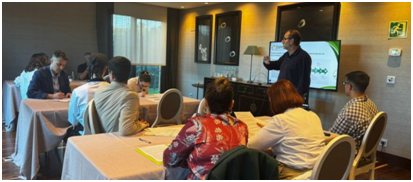
- Technological developmentAn open-source mobile App, currently in testing phase, and a sensor device for hotels were created, both designed to facilitate wastereduction from the end-user to the business.
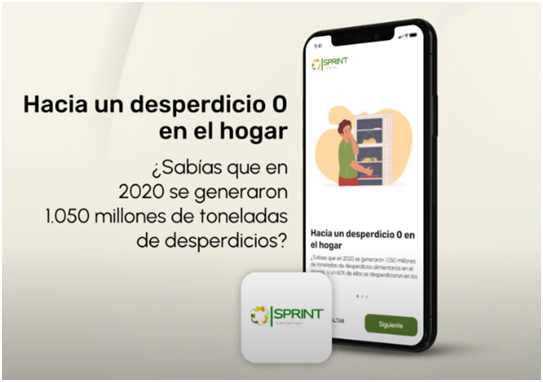
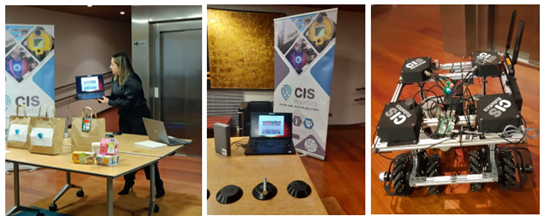
- Impact evaluationA pre- and post-intervention evaluation approach was implemented to measure outcomes such as food waste reduction, economic savings, carbon footprint reduction and resource efficiency.
During the first year, initial quantification of waste in households, hotels and supermarkets was carried out in order to establish a baseline against which the impact of the interventions could be assessed.
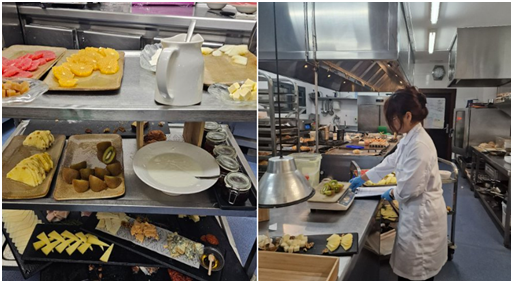
At the end of implementation, a second measurement will be carried out to compare with the baseline to determine the concrete effects of the implemented actions.
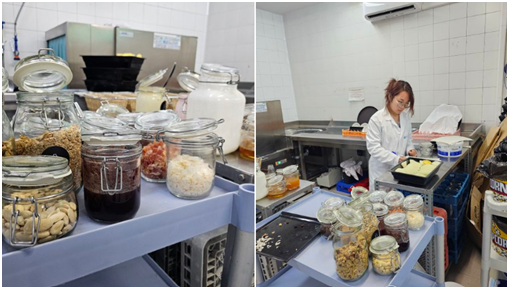
- Communication and visibility: In order to give visibility to the SPRINT project, communicate its aims, activities and progress, as well as raise awareness and actively involve citizens and key actors in the food sector, various communication and participation actions have been developed during its first year of implementation. These initiatives have sought not only to inform, but also to raise collective awareness of the problem of food waste and encourage social commitment to more sustainable practices. Among the actions carried out are:
- Two project launch events were held, one in Oviedo (Asturias) and the other in Barcelona (Catalonia), where the SPRINT project, its objectives, strategies and partners were presented. Both meetings included round table discussions, presentations of strategies and awareness-raising actions aimed at highlighting the importance of reducing food waste and encouraging the involvement of the different actors involved.
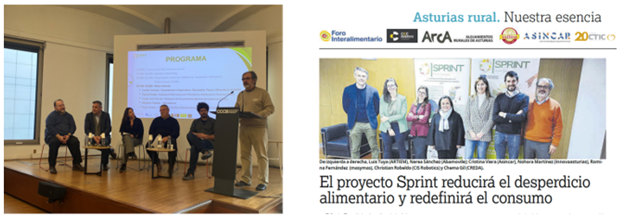
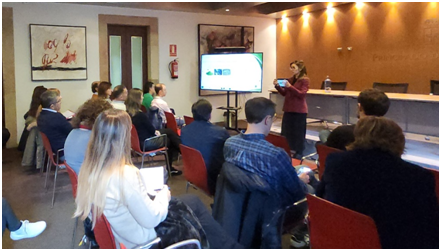
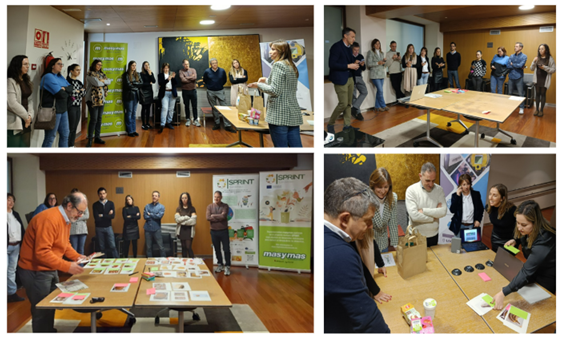
- SPRIN has been present at two international fairs (Food4Future and the Transfiere Forum), as well as giving a talk at the Master's Degree in Circularity at the University of Oviedo.
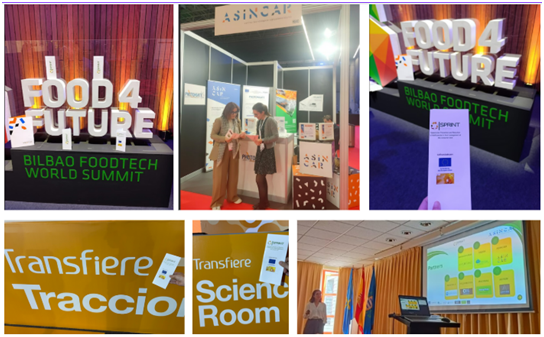
- SPRINT has kept its website and social networks active as key elements in its communication and participation strategy. These channels have played a fundamental role in the dissemination of the project's progress, the visibility of its main milestones and the promotion of good practices for the reduction of food waste in different contexts. They have also functioned as dynamic spaces to encourage the participation of citizens, institutions, companies and other strategic actors, thus strengthening the collaboration and co-creation processes that characterise the initiative. Relevant information has also been shared through these platforms on the methodology used, the tools developed (such as the opensource mobile application), as well as calls for proposals, events and other key actions of the project.
- Currently, SPRINT has already initiated the development of workshops aimed at promoting the reduction of food waste. Thus, in June, the first workshop was held on the topic of the new Law 1/2025 on the prevention of food losses and food waste recently approved in Spain. This work included coordination with the collaborating entities involved in its development (Innovasturias, ASINCAR and Oviedo Emprende). The workshop was structured in three clearly differentiated parts. In the first part, Innovasturias was in charge of the presentation of the SPRINT project, giving an overview of its objectives, scope and planned activities. The second part was developed by ASINCAR and focused on the key aspects of the new food waste law in Spain, providing attendees with a clear understanding of the legal framework and its implications. Finally, the third part, also by ASINCAR, consisted of the presentation of concrete examples of good practices aimed at reducing food waste, in order to illustrate possible actions and strategies applicable in different contexts.
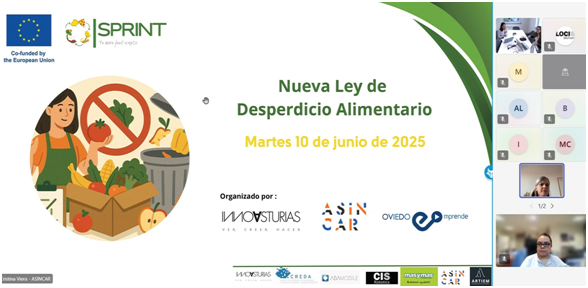
This article has been just a brief glimpse of the intense work carried out during the first year of implementation of the SPRINT project, an initiative that is making steady progress towards reducing food waste in households, supermarkets and hotels. Thanks to the commitment of many actors and a collaborative approach, a solid foundation has been laid to transform habits, develop innovative tools and generate useful knowledge for real change.
But this is only the beginning. In this second year of implementation, SEPRINT continues to deploy strategies and prepare new interventions that will allow it to measure, with real data, the impact of the actions developed. In addition, workshops, co-creation spaces and the strengthening of networks with key actors in the food system will be intensified. Each of these actions aims to raise awareness, generate shared solutions and consolidate a community committed to more responsible and sustainable practices.
SPRINT is still on the move, and with it, the collective commitment to build a fairer, more efficient and planet-friendly food model. We invite you to follow the project closely and be part of the change!



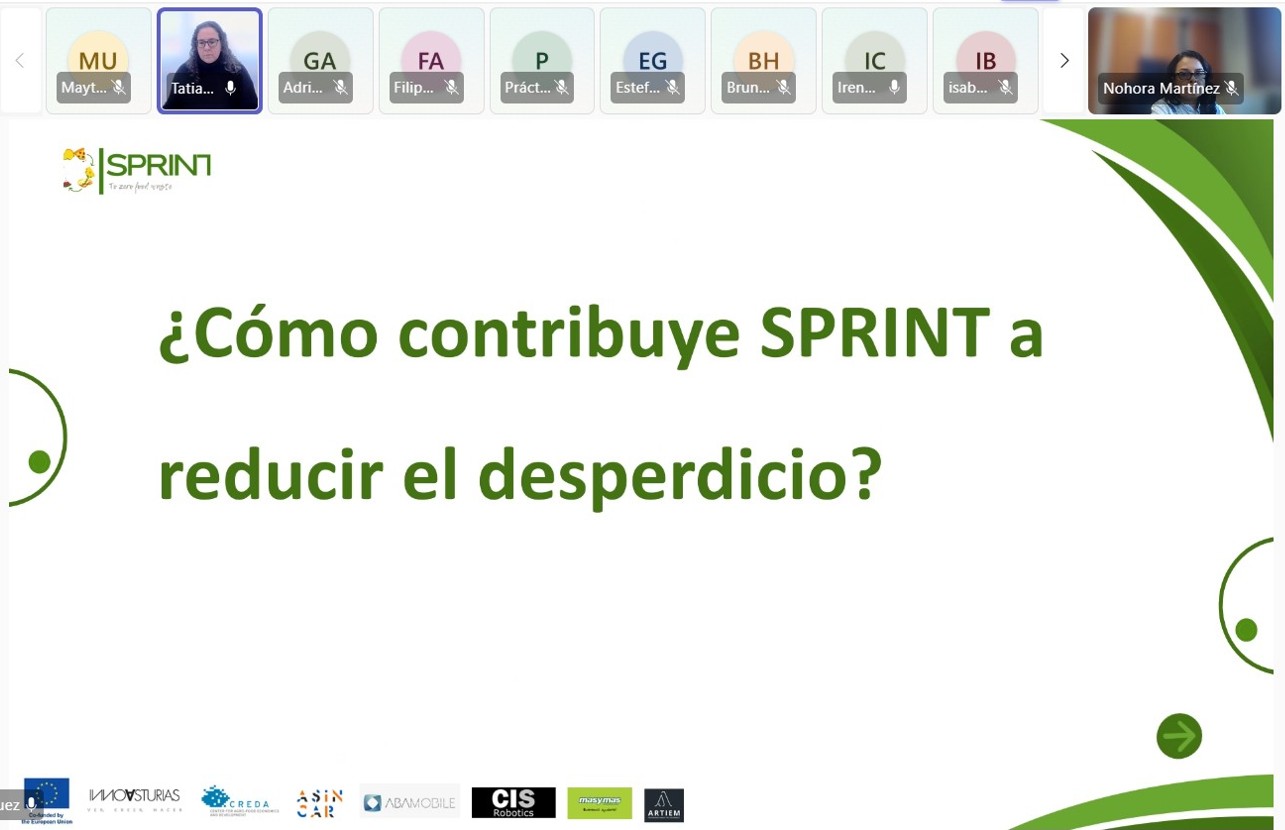
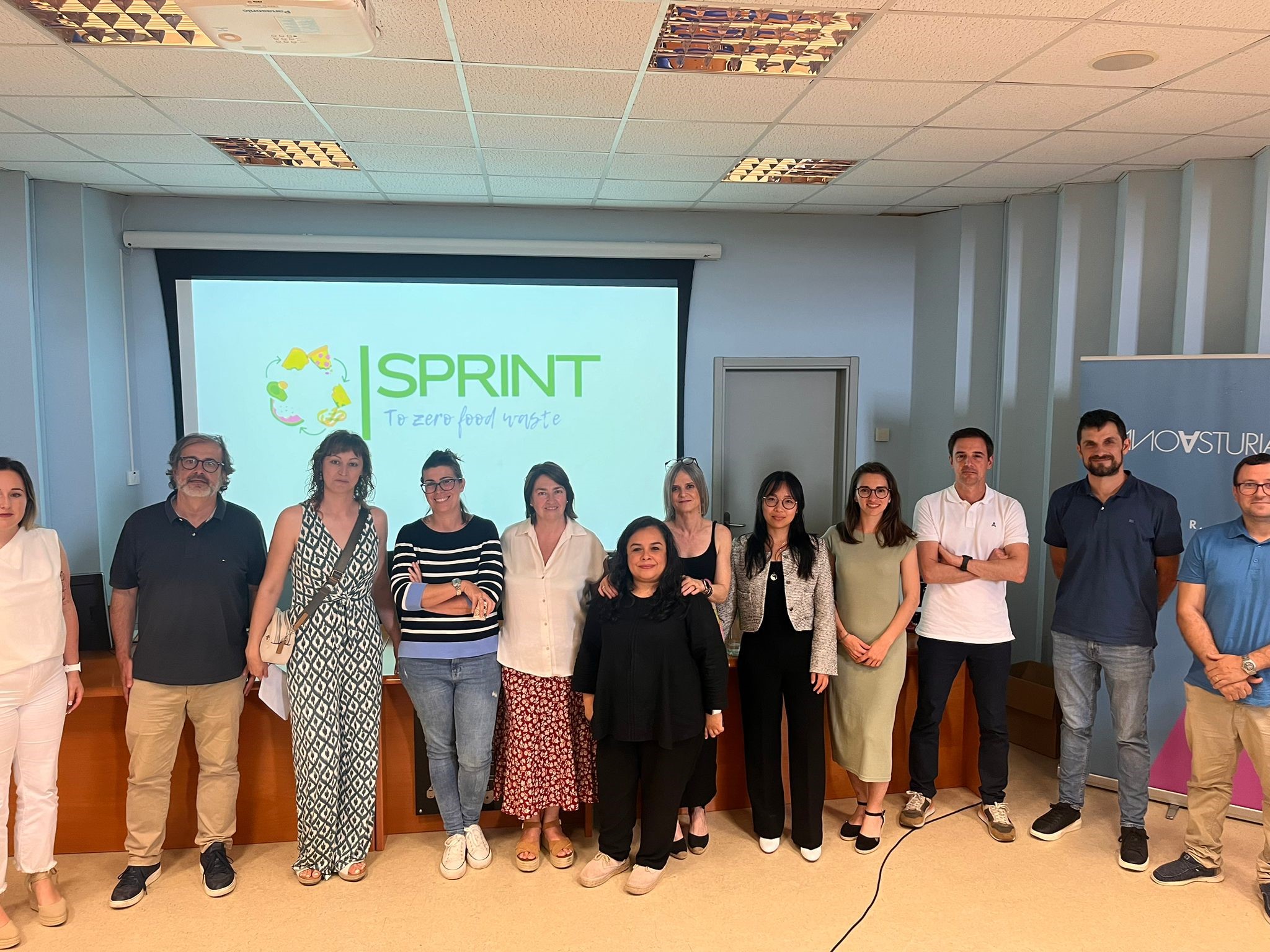
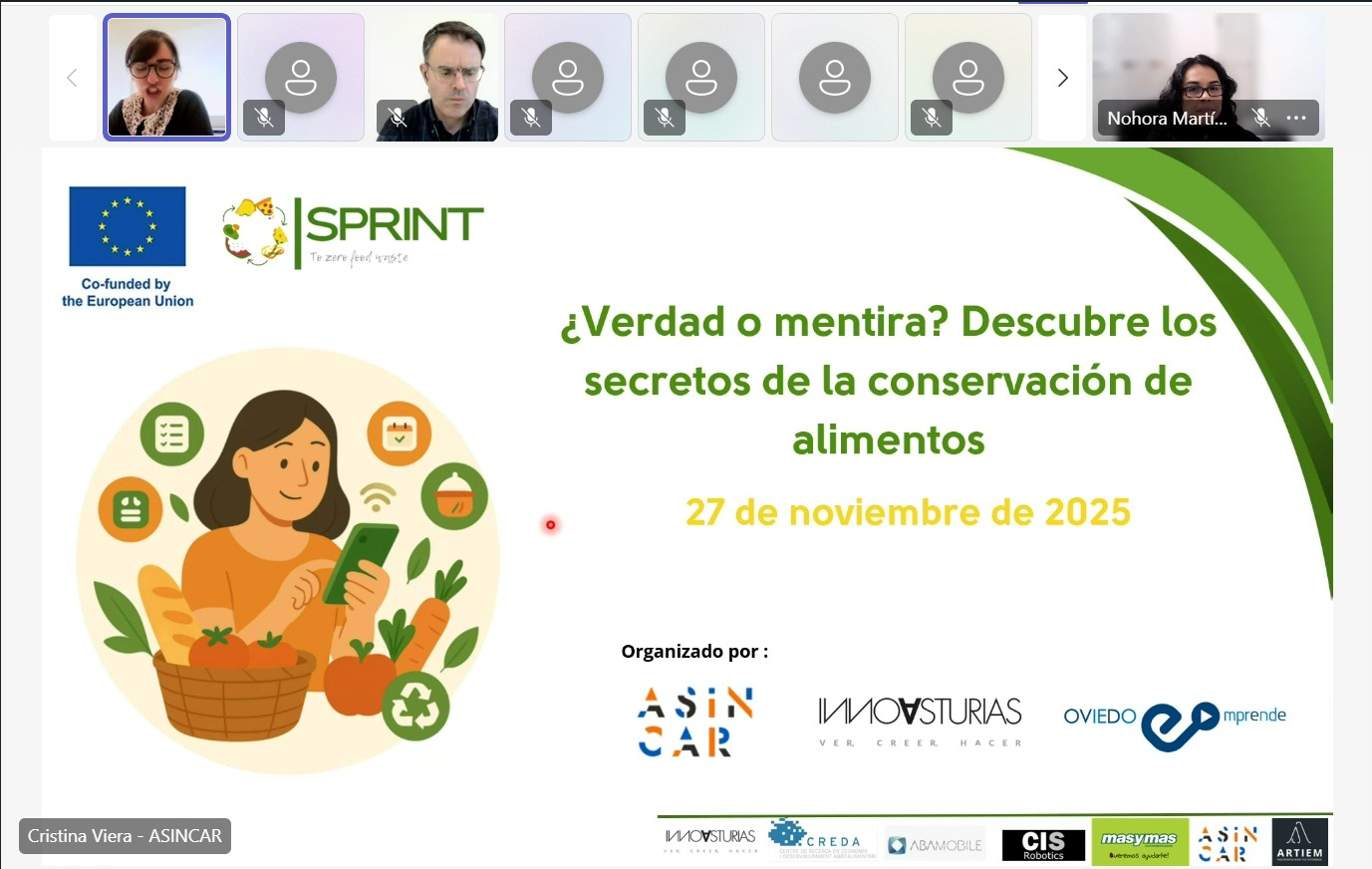
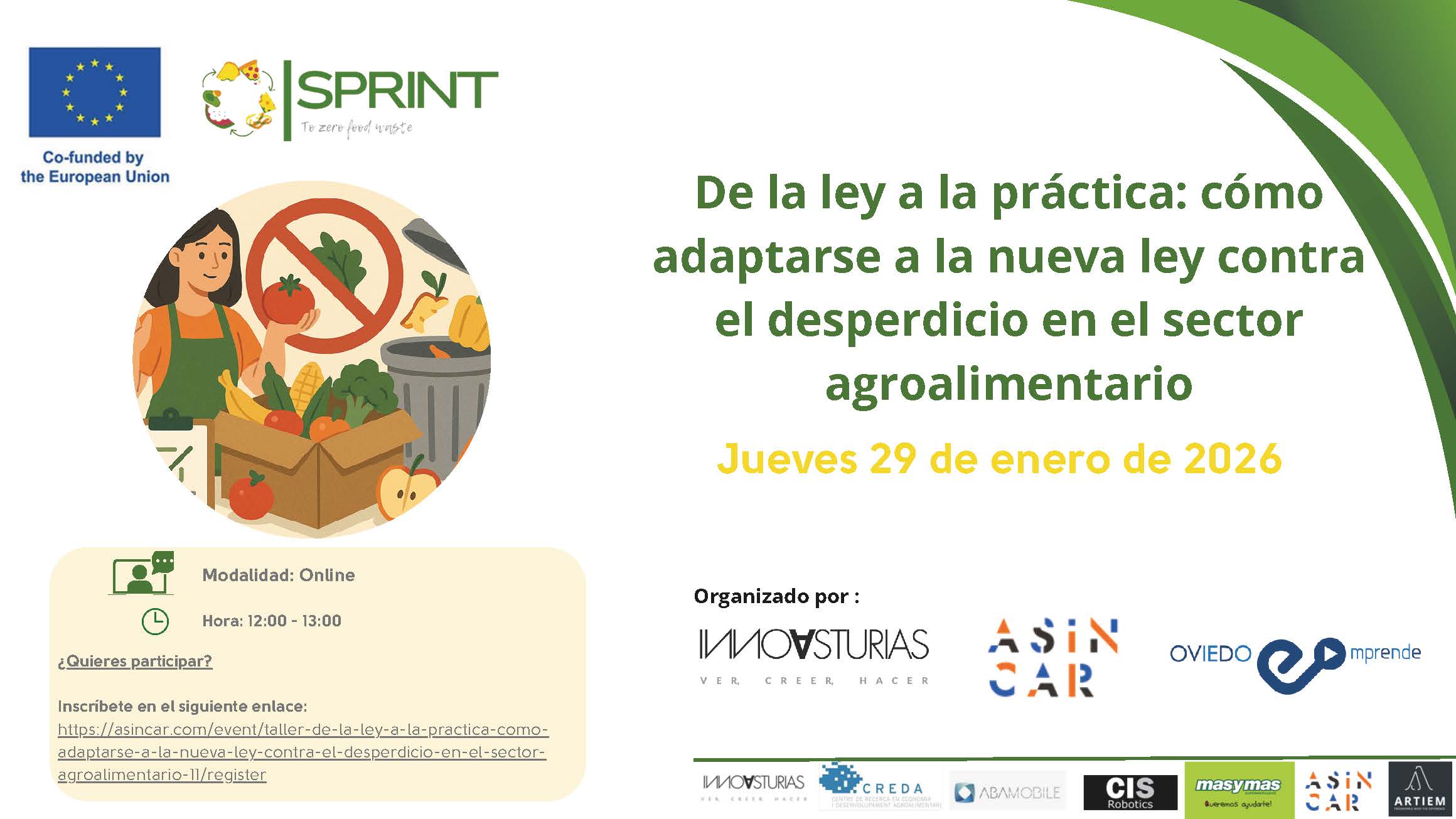
Leave a comment